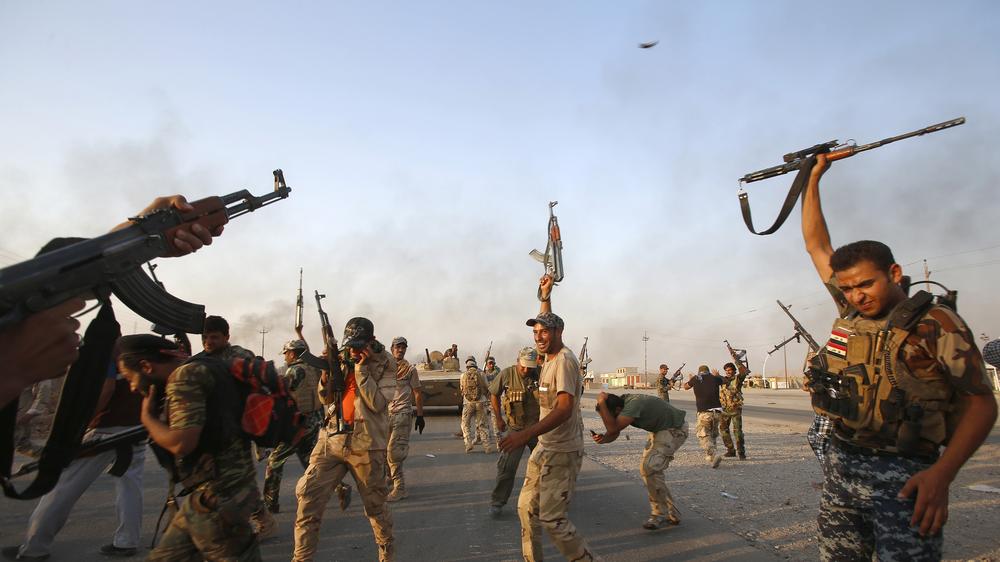English version of "Das westliche Gejammer" and part of a series of articles in DIE ZEIT that started a debate on the current state of the west with Bernd Ulrich asking "The world is going crazy – and what are we doing?".
Absolute power corrupts, goes the old truism. More accurately, it provincializes. Geopolitical power of this kind isolates its wielders from the experience of the vast majority of mankind – the relatively powerless. It explains the wishful thinking that has characterized the speeches of Western statesmen and the fundamental assumptions of the mainstream media in Europe and America since the end of the cold war: that Western-style liberal democracy and capitalism would be gradually generalized around the world.
One event after another in recent months has devastated this facile optimism, plunging a broad swathe of political and media elites in the West into stunned bewilderment.
As I write, ethnic cleansers, jihadists, and ultra-Zionist settlers are redrawing the Europe-created map of the Middle East. Insecure regimes in China and Russia threaten their neighbors. Even the new prime minister of the ‘world’s largest democracy’ is implicated in the mass murder of a religious minority. Authoritarian leaders, anti-democratic backlashes and right-wing extremism also define the politics of Israel, Burma, Sri Lanka, Thailand, Turkey, and Egypt. Bloody insurgents in Central Africa have long muddled national borders. In North Africa, Libya, evidently ‘saved’ by Western humanitarian intervention, has actually become the first failed petro-state.
To this spectacle of evidently uncontrollable mayhem, the most commonplace response seems to be despair over American ‘weakness’ and accusations about what Barack Obama, as president of the ‘sole superpower,’ should have done or ought to do. Roger Cohen of the New York Times is not untypical among the pundits blaming extremism on ‘European nations with populations from former colonies,’ which, ‘often seem unable to celebrate their values of freedom, democracy and the rule of law.’
The believers in the West’s capacity to shape global events and congratulate itself eternally were afflicted with an obsolete assumption even in 1989: that the 20th century was defined by the battles between liberal democracy and totalitarian ideologies such as Fascism and Communism. Their obsession with a largely intra-Western dispute obscured the fact that the most significant event of the 20th century was de-colonization, and the emergence of new nation-states across Asia and Africa from the ruins of Western empires (a process in which anti-colonial activists often found themselves confronting liberal democracies that were also ruthlessly imperialist: thus, Winston Churchill, the great savior of Western democracy, was seen as a racist oppressor by his Indian subjects). But for people luxuriating at a high level of abstraction, and accustomed to dealing during the cold war with nation-states organized simply into blocs and superblocs, it was always too inconvenient to go down to the thicket of distinctions and particularities that make up the real world.
If they had indeed risked complexity and contradiction, they would have found that the urge to be a modern nation-state along Western lines initially ordered and then disordered a vast swathe of the postcolonial world. Resentful of European dominance over their societies, Asians and Africans sought to find the means to true power and sovereignty. In this quest, the Western model of state-building inspired China’s Mao Zedong as much as Iran’s democratic prime minister Mohammed Mossadegh. For many Asians and Africans, the tremendous success of Western Europe’s very small countries showed that human beings could radically manipulate their environment and boost their collective power with the help of a political institution like the nation-state.
This was the harsh lesson the swift victories of Napoleon had first taught Europe; many other European societies then learned how to deploy effectively a modern military, an industrialized economy and create a feeling of belonging and solidarity (often by identifying dangerous enemies within and without). By the 1940s, competitive nationalisms in Europe stood implicated in the most vicious wars and crimes against religious and ethnic minorities witnessed in human history; and postwar Western European countries were forced to imagine, under American auspices and the pressures of the cold war, less antagonistic political and economic relations, which eventually resulted in the European Union.
But the new postcolonial nation-states had already started on their own fraught journey to modernity, riding roughshod over ethnic and religious diversity. The lifestyles of Europeans and Americans were what we in postcolonial Asia and Africa had been promised by our socialist and secular nationalist icons – Nehru, Nasser, Nkrumah, Mao, and Sukarno. More recently, non-Western ruling classes have looked to McKinsey and Company – the herald of modern globalization – rather than Marx and Mazzini to help define their socio-economic future; but they have not dared to alter the founding basis of their legitimacy as ‘modernizers.’ As it turns out, the latecomers to modernity, dumping protectionist socialism for global capitalism, have got their timing wrong again.
English version of "Das westliche Gejammer" and part of a series of articles in DIE ZEIT that started a debate on the current state of the west with Bernd Ulrich asking "The world is going crazy – and what are we doing?".
Absolute power corrupts, goes the old truism. More accurately, it provincializes. Geopolitical power of this kind isolates its wielders from the experience of the vast majority of mankind – the relatively powerless. It explains the wishful thinking that has characterized the speeches of Western statesmen and the fundamental assumptions of the mainstream media in Europe and America since the end of the cold war: that Western-style liberal democracy and capitalism would be gradually generalized around the world.
